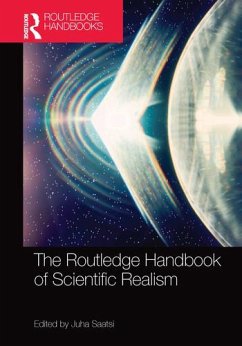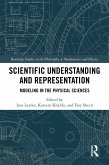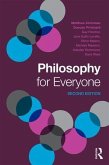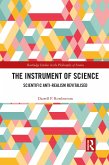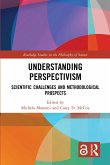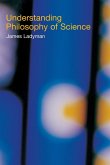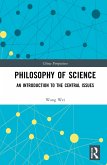Scientific realism is a central, long-standing, and hotly debated topic in philosophy of science. Debates about scientific realism concern the very nature and extent of scientific knowledge and progress. Scientific realists defend a positive epistemic attitude towards our best theories and models regarding how they represent the world that is unobservable to our naked senses. Various realist theses are under sceptical fire from scientific antirealists, e.g. empiricists and instrumentalists. The different dimensions of the ensuing debate centrally connect to numerous other topics in philosophy of science and beyond.
The Routledge Handbook of Scientific Realism is an outstanding reference source - the first collection of its kind - to the key issues, positions, and arguments in this important topic. Its thirty-four chapters, written by a team of international experts, are divided into five parts:
Historical development of the realist stance
Classic debate: core issues and positions
Perspectives on contemporary debates
The realism debate in disciplinary context
Broader reflections
In these sections, the core issues and debates presented, analysed, and set into broader historical and disciplinary contexts. The central issues covered include motivations and arguments for realism; challenges to realism from underdetermination and history of science; different variants of realism; the connection of realism to relativism and perspectivism; and the relationship between realism, metaphysics, and epistemology.
The Routledge Handbook of Scientific Realism is essential reading for students and researchers in philosophy of science. It will also be very useful for anyone interested in the nature and extent of scientific knowledge.
The Routledge Handbook of Scientific Realism is an outstanding reference source - the first collection of its kind - to the key issues, positions, and arguments in this important topic. Its thirty-four chapters, written by a team of international experts, are divided into five parts:
Historical development of the realist stance
Classic debate: core issues and positions
Perspectives on contemporary debates
The realism debate in disciplinary context
Broader reflections
In these sections, the core issues and debates presented, analysed, and set into broader historical and disciplinary contexts. The central issues covered include motivations and arguments for realism; challenges to realism from underdetermination and history of science; different variants of realism; the connection of realism to relativism and perspectivism; and the relationship between realism, metaphysics, and epistemology.
The Routledge Handbook of Scientific Realism is essential reading for students and researchers in philosophy of science. It will also be very useful for anyone interested in the nature and extent of scientific knowledge.
'This is a state-of-the-art overview of the debate about scientific realism, a perfect guide for both scholars and graduate students in metaphysics and philosophy of science.'
Michael Esfeld, University of Lausanne, Switzerland
"The Routledge Handbook of Scientific Realismis indeed and truly an insightful and understandable state-of-the-art presentation of its subject. Though presumably you will be not converted into a realist after reading the whole handbook, it will be harder to resist realist reasoning without further ado. Really recommended."
Adam Tamas Tuboly, Institute of Philosophy, Hungarian Academy of Sciences
Michael Esfeld, University of Lausanne, Switzerland
"The Routledge Handbook of Scientific Realismis indeed and truly an insightful and understandable state-of-the-art presentation of its subject. Though presumably you will be not converted into a realist after reading the whole handbook, it will be harder to resist realist reasoning without further ado. Really recommended."
Adam Tamas Tuboly, Institute of Philosophy, Hungarian Academy of Sciences
'This is a state-of-the-art overview of the debate about scientific realism, a perfect guide for both scholars and graduate students in metaphysics and philosophy of science.'
Michael Esfeld, University of Lausanne, Switzerland
"The Routledge Handbook of Scientific Realismis indeed and truly an insightful and understandable state-of-the-art presentation of its subject. Though presumably you will be not converted into a realist after reading the whole handbook, it will be harder to resist realist reasoning without further ado. Really recommended."
Adam Tamas Tuboly, Institute of Philosophy, Hungarian Academy of Sciences
Michael Esfeld, University of Lausanne, Switzerland
"The Routledge Handbook of Scientific Realismis indeed and truly an insightful and understandable state-of-the-art presentation of its subject. Though presumably you will be not converted into a realist after reading the whole handbook, it will be harder to resist realist reasoning without further ado. Really recommended."
Adam Tamas Tuboly, Institute of Philosophy, Hungarian Academy of Sciences

